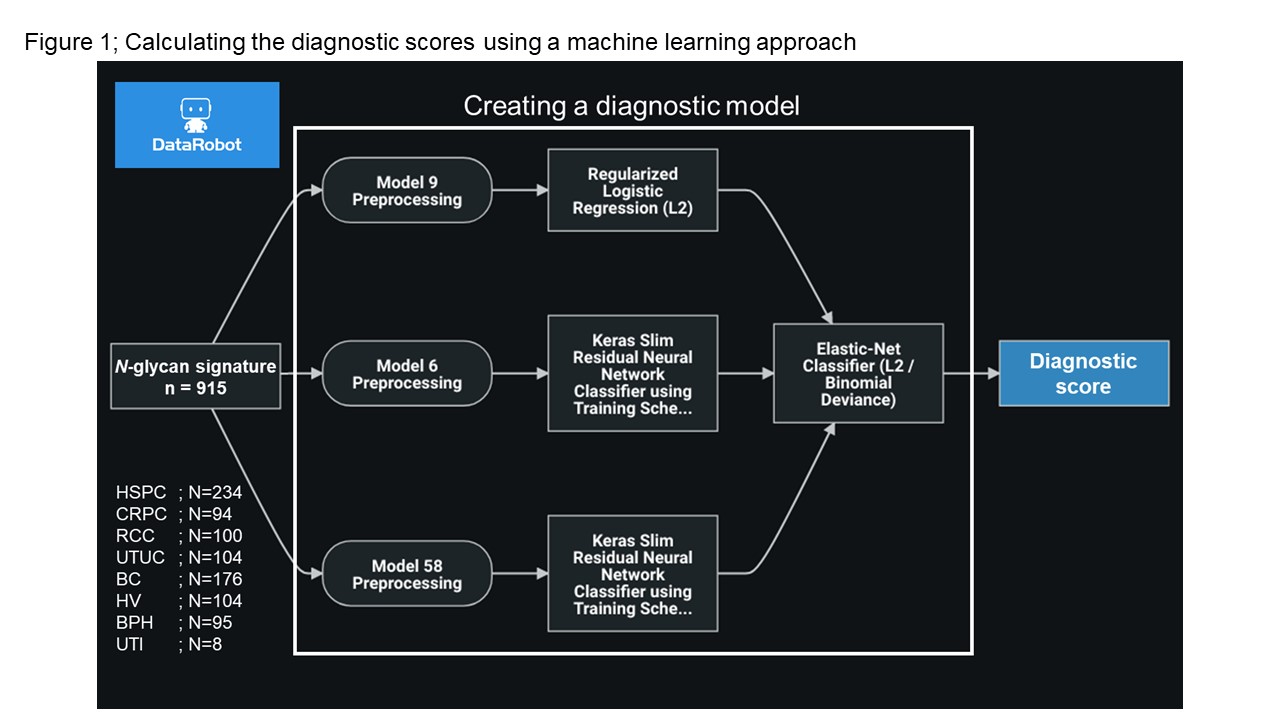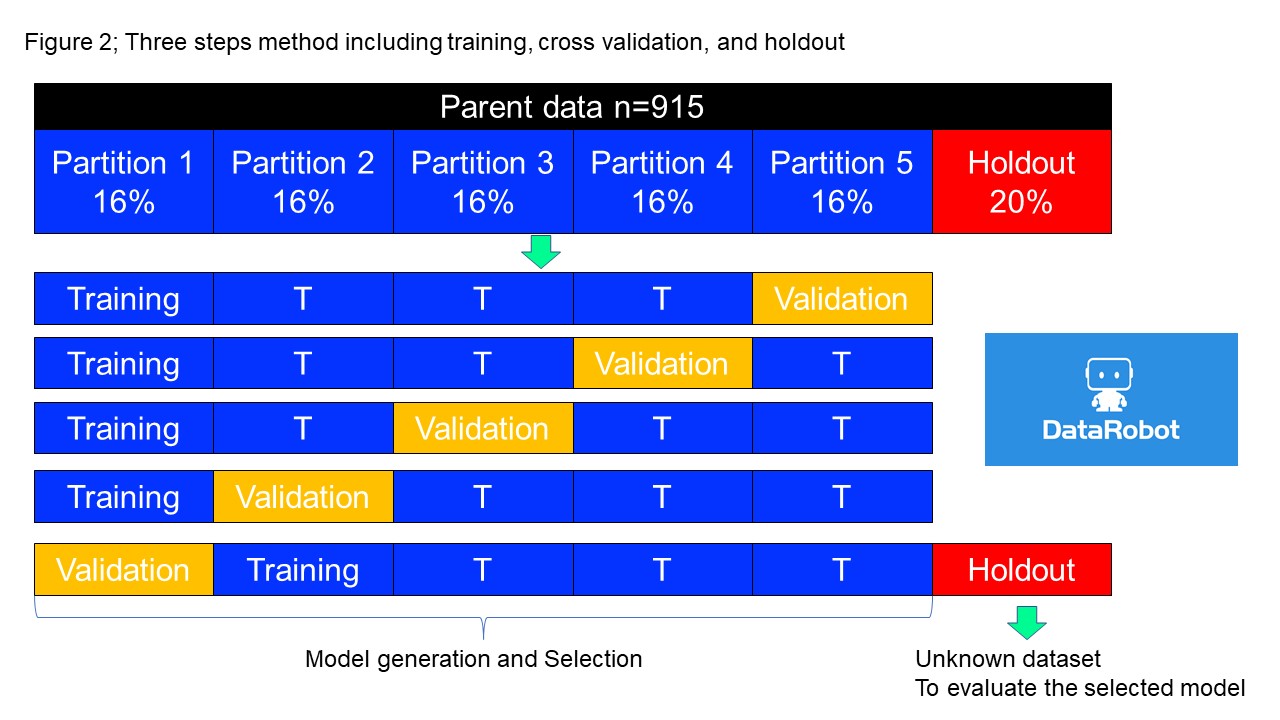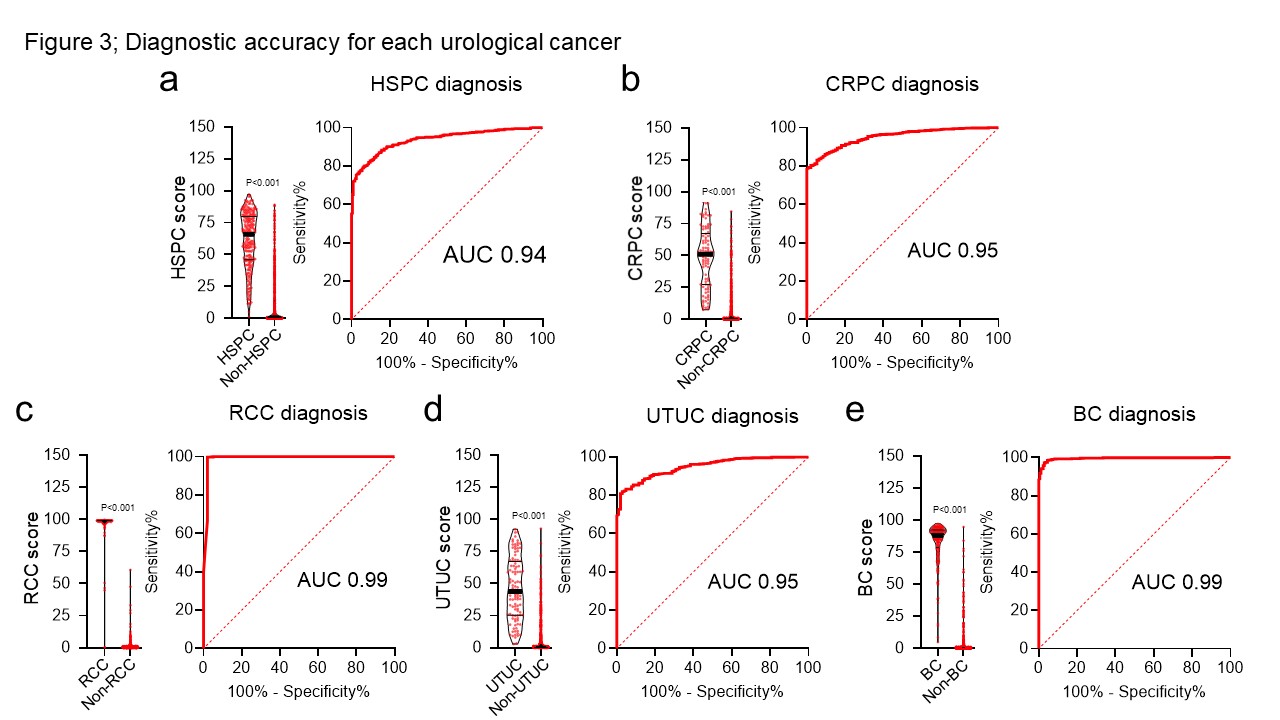Back
Poster, Podium & Video Sessions
Moderated Poster
MP30: Global Health/Humanitarian
MP30-09: Development of a novel diagnostic model for urological cancers using comprehensive N-glycan signatures of serum immunoglobulins with a machine learning approach.
Saturday, May 14, 2022
1:00 PM – 2:15 PM
Location: Room 222
Hiromichi Iwamura*, Tohru Yoneyama, Hirotake Kodama, Kai Ozaki, Yusuke Ozaki, Kazutaka Okita, Sakae Konishi, Takuma Narita, Naoki Fujita, Yuta Kojima, Teppei Okamoto, Yuki Tobisawa, Hayato Yamamoto, Shingo Hatakeyama, Takahiro Yoneyama, Yasuhiro Hashimoto, Chikara Ohyama, Hirosaki, Japan

Hiromichi Iwamura
Hirosaki University Graduate School of Medicine
Poster Presenter(s)
Introduction: In cancer screening, there is a need for a minimally invasive tool that can simultaneously identify the risk of various cancer types. We aimed to establish a novel diagnostic model for urological cancers using N-glycan signatures of serum immunoglobulins (Igs) with a machine learning approach.
Methods: N-glycosylation signatures were measured in 708 urological cancer patients and 207 non-cancer subjects using automated capillary-electrophoresis-based N-glycomics. The obtained concentrations of the 26 glycans were analyzed using a supervised machine learning model to calculate the diagnostic scores for each urological cancer; hormone-sensitive prostate cancer (HSPC), castration-resistant prostate cancer (CRPC), renal cell carcinoma (RCC), upper tract urothelial carcinoma (UTUC), and bladder cancer (BC). Diagnostic performance was evaluated using the area under receiver operating characteristics curve (AUC).
Results: Urological cancer patients included 234 HSPC, 94 CRPC, 100 RCC, 104 UTUC, and 176 BC. Non-cancer subjects included 104 healthy volunteers, 95 benign prostatic hyperplasia, and 8 urinary tract infection. The diagnostic scores of HSPC vs. non-HSPC, CRPC vs. non-CRPC, RCC vs non-RCC, UTUC vs non-UTUC, and BC vs non-BC were 65.9% vs. 0.6%, 51.0% vs. 0.6%, 98.7% vs. 0.3%, 43.8% vs. 1.0%, and 88.0% vs. 0.4%, respectively (P <0.001). The AUCs for the diagnosis of HSPC, CRPC, RCC, UTUC, and BC were 0.94, 0.95, 0.99, 0.95, and 0.99, respectively.
Conclusions: Our diagnostic model using comprehensive N-glycan signature of serum Igs through a machine learning approach could simultaneously discriminate each urological cancer with excellent accuracy. Further external validation studies are needed.
Source of Funding: None



Methods: N-glycosylation signatures were measured in 708 urological cancer patients and 207 non-cancer subjects using automated capillary-electrophoresis-based N-glycomics. The obtained concentrations of the 26 glycans were analyzed using a supervised machine learning model to calculate the diagnostic scores for each urological cancer; hormone-sensitive prostate cancer (HSPC), castration-resistant prostate cancer (CRPC), renal cell carcinoma (RCC), upper tract urothelial carcinoma (UTUC), and bladder cancer (BC). Diagnostic performance was evaluated using the area under receiver operating characteristics curve (AUC).
Results: Urological cancer patients included 234 HSPC, 94 CRPC, 100 RCC, 104 UTUC, and 176 BC. Non-cancer subjects included 104 healthy volunteers, 95 benign prostatic hyperplasia, and 8 urinary tract infection. The diagnostic scores of HSPC vs. non-HSPC, CRPC vs. non-CRPC, RCC vs non-RCC, UTUC vs non-UTUC, and BC vs non-BC were 65.9% vs. 0.6%, 51.0% vs. 0.6%, 98.7% vs. 0.3%, 43.8% vs. 1.0%, and 88.0% vs. 0.4%, respectively (P <0.001). The AUCs for the diagnosis of HSPC, CRPC, RCC, UTUC, and BC were 0.94, 0.95, 0.99, 0.95, and 0.99, respectively.
Conclusions: Our diagnostic model using comprehensive N-glycan signature of serum Igs through a machine learning approach could simultaneously discriminate each urological cancer with excellent accuracy. Further external validation studies are needed.
Source of Funding: None

.jpg)
.jpg)